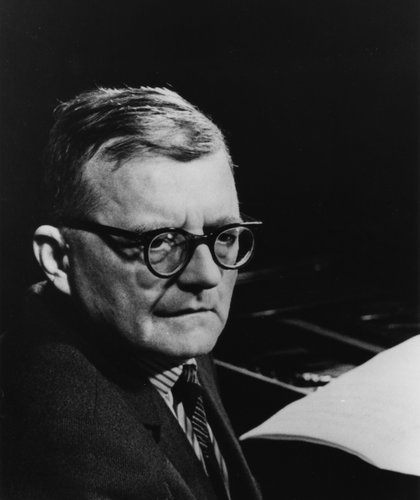
Dmitri Shostakovich
Dmitri Shostakovich belongs to the generation of composers trained principally after the Communist Revolution of 1917. He graduated from the St. Petersburg Conservatory as a pianist and composer, his First Symphony winning immediate favour. His subsequent career in Russia varied with the political climate. The initial success of his opera Lady Macbeth of Mtsensk District, based on Leskov, and later revised as Katerina Ismailova, was followed by official condemnation, emanating apparently from Stalin himself. The composer's Fifth Symphony, in 1937, brought partial rehabilitation, while the war years offered a propaganda coup in the Leningrad Symphony, performed in the city under German siege. In 1948 he fell foul of the official musical establishment with a Ninth Symphony thought to be frivolous, but enjoyed the relative freedom following the death of Stalin in 1953. Outwardly and inevitably conforming to official policy, posthumous information suggests that Shostakovich remained very critical of Stalinist dictates, particularly with regard to music and the arts. He occupies a significant position in the 20th century as a symphonist and as a composer of chamber music, writing in a style that is sometimes spare in texture but always accessible, couched as it is in an extension of traditional tonal musical language. Stage Works Katerina Ismailova remains the principal opera of Shostakovich, with the early opera The Nose, based on Gogol, and the ballet The Golden Age. Incidental music for the theatre includes scores for Shakespeare's Hamlet and for King Lear, the same two plays being among the films for which he wrote scores. Orchestral Music Symphonies The fifteen symphonies of Shostakovich range in scope from the First Symphony of 1925, a graduation composition, to the embittered Thirteenth using Yevtushenko's poems. The Fourteenth, which contains settings of various poems came two years before the Fifteenth and last symphony of 1971. The Fifth Symphony, the immediate post-war Ninth and the Tenth of 1953 are most often heard, while Nos. 2 and 3, with Nos. 11 and 12, have more overtly patriotic suggestions about them.